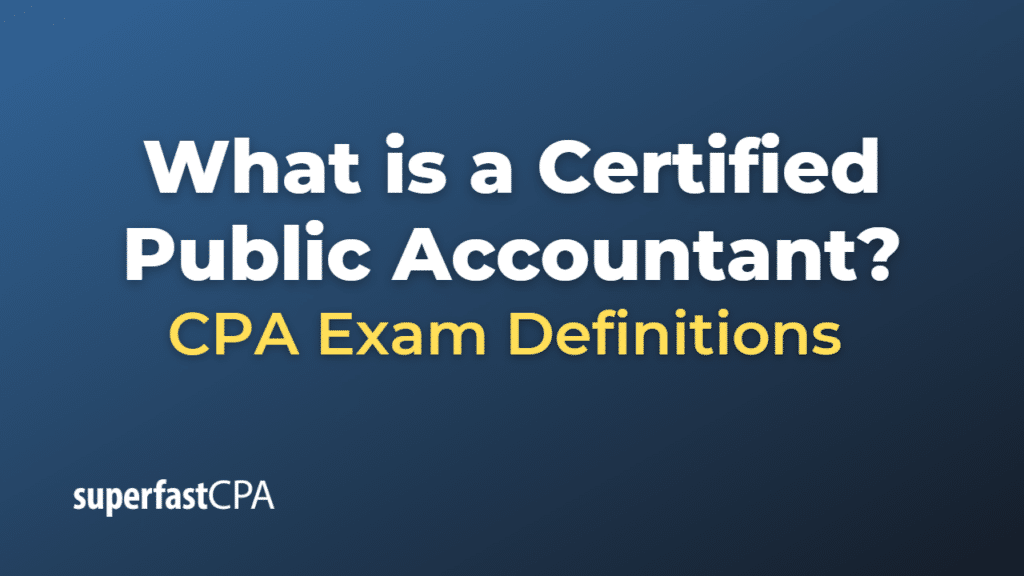Certified Public Accountant
A Certified Public Accountant (CPA) is a professional designation for qualified accountants in the United States who have met specific education, examination, and experience requirements. CPAs provide a range of accounting, auditing, tax, and consulting services for individuals, businesses, and other organizations. To become a CPA, candidates must typically:
- Complete a bachelor’s degree in accounting or a related field, with a minimum number of accounting and business credit hours as specified by the state board of accountancy.
- Pass the Uniform Certified Public Accountant Examination, a rigorous national exam administered by the American Institute of Certified Public Accountants (AICPA). The exam consists of four sections: Auditing and Attestation (AUD), Business Environment and Concepts (BEC), Financial Accounting and Reporting (FAR), and Regulation (REG).
- Fulfill a certain number of hours of work experience in the accounting field, usually under the supervision of a licensed CPA. The experience requirement varies by state.
- Meet any additional requirements set by the state board of accountancy, such as passing an ethics exam or completing continuing education courses to maintain the license.
CPAs are held to high professional and ethical standards, which helps to ensure the quality and reliability of the services they provide.
Example of a Certified Public Accountant
Let’s say you own a small business, and you’re looking for professional help with your financial reporting, tax planning, and compliance with various regulations. You might consider hiring a Certified Public Accountant (CPA) to assist you with these tasks. Here’s an example of how a CPA might help your small business:
- Financial reporting: A CPA can prepare and analyze your company’s financial statements, such as the income statement, balance sheet, and statement of cash flows. They can also provide insights into your company’s financial health, identify potential issues, and suggest strategies for improvement.
- Tax planning and preparation: CPAs have extensive knowledge of federal, state, and local tax laws. They can help you optimize your tax strategy, minimize your tax liabilities, and ensure that your business remains compliant with tax regulations. Additionally, they can prepare and file your business’s tax returns accurately and on time.
- Auditing and assurance services: If your business requires an audit, a CPA can perform an independent examination of your financial statements to verify their accuracy and compliance with accounting standards. They can also provide assurance services, such as reviewing your company’s internal controls and assessing the risk of fraud.
- Business consulting: CPAs can provide valuable advice on various aspects of your business operations, including budgeting, cash flow management, mergers and acquisitions, and strategic planning.
In this example, the CPA would act as a trusted advisor to help you navigate complex financial and regulatory matters, allowing you to focus on growing your business.













